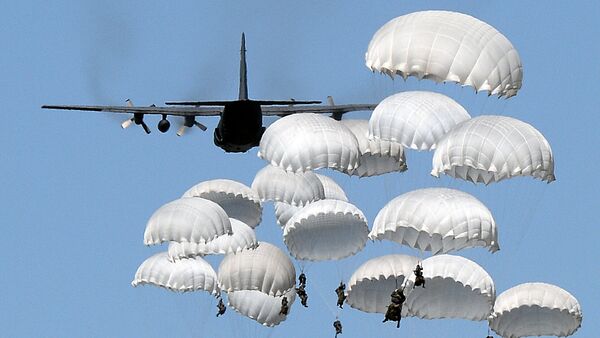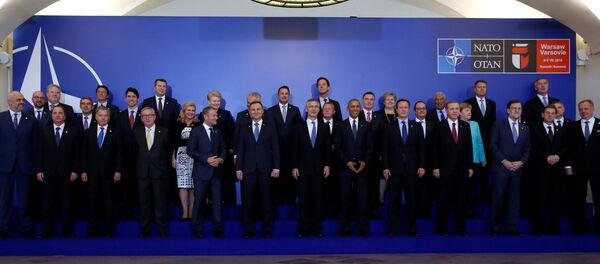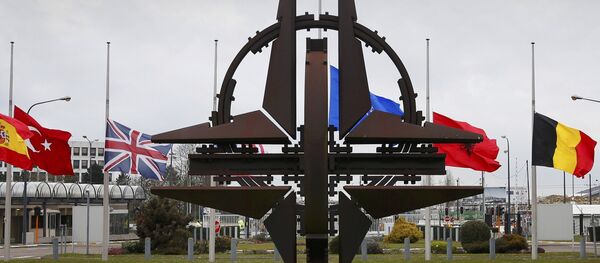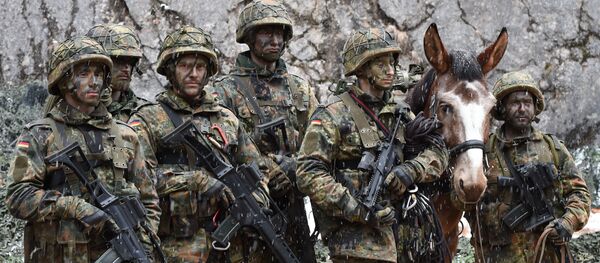Karaganov said that statements by both sides attest to the dangerous state of the crisis and blasted the West for its continued saber rattling along Russia’s border with NATO moving to install a permanent troop presence in Poland and after weeks of massive war games culminating in June with a 30,000 troop show of force led by German soldiers on the 75th anniversary of the Nazi invasion.
"The Russian media is more reserved than Western media, though you have to understand that Russia is very sensitive about defense. We have to be prepared for everything. That is the source of this occasionally massive amount of propaganda," he said. "But what is the West doing? It is doing nothing but vilifying Russia; it believes that we are threatening to attack. The situation is comparable to the crisis at the end of the 1970s and beginning of the 1980s."
The expert’s remarks on the late-1970s and early 1980s was a reference to the build-up of intermediate-range nuclear missiles in Europe that could have led to an unintended nuclear war. The missiles had a very short approach time that left not time for an attacked side to react, making automatic retaliation the only possible reaction to a decapitating nuclear barrage – it also increased the likelihood of an accidental nuclear war outbreak as false radar readings often led each side to believe an attack was launched.
Karaganov sees the buildup of NATO forces on Russia’s border as akin to the installation of Peshing and SS-20 missiles three decades ago which maximize the risk that the trains of war may leave the station before cooler heads can prevail.
"Fears in countries like Lithuania and Latvia are to be allayed by NATO stationing weapons there. But that doesn’t help them; we interpret that as a provocation. In a crisis, we will destroy exactly these weapons. Russia will never again fight on its own territory," explained Karaganov.
"The help offered by NATO is not symbolic help for the Baltic states. It is a provocation. If NATO initiates an encroachment – against a nuclear power like ourselves – it will be punished," he stressed.
He explained that the Russia views the massive wargames in NATO’s summer of provocation as a prelude to an invasion by the West and cautioned that Moscow has zero trust in the military alliance.
"We believe that Russia is morally in the right. There won’t be any fundamental concessions coming from our side," he said. "Psychologically, Russia has now become a Eurasian power – I was one of the intellectual fathers of the eastward pivot. But now I am of the opinion that we shouldn’t turn away from Europe. We have to find ways to revitalize our relations."





